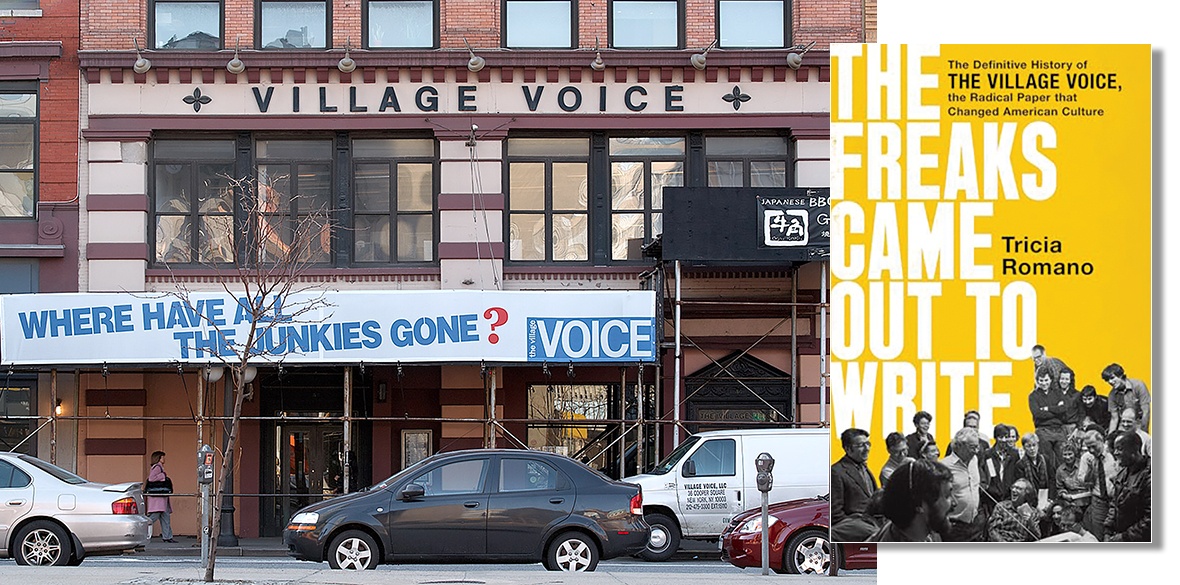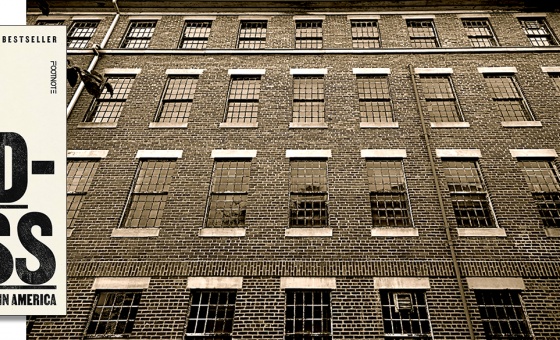This is the last article you can read this month
You can read more article this month
You can read more articles this month
Sorry your limit is up for this month
Reset on:
Please help support the Morning Star by subscribing here
NEWSSTANDS used to be like a library.
Dozens of newspapers, magazines and paperbacks filled the shelves of even the smallest such establishments. They might be standing alone like those in major cities everywhere or they might be one section of a drugstore or bookstore. On most military bases, they were an extension of the US military’s equivalent of a department store — the Post Exchange (PX).
I spent many hours hanging out at such newsstands, reading science fiction magazines, music rags, the Sporting News, peeking at the Playboys, scanning various daily newspapers and exploring paperback books of all kinds. The variety of media that existed then and was available in print was better than any school course I ever took. Indeed, if it weren’t for newsstands, I would probably never have become a weekly reader of the Village Voice, a forerunner of the underground press and all that succeeded it.
The Voice’s ornery challenge to the powerful and the arrogant struck a chord in my 14-year-old brain the day I discovered the paper in 1969. When I lived in Frankfurt am Main in what was then West Germany, it was the Village Voice that helped keep me in touch with the parts of US culture I was interested in. It also convinced me to move to New York City as soon as I go out of my parents’ house.
It wasn’t perfect, nor was it as radical as I became. It suffered from a lack of black writers for a while, just as its male chauvinism (as we used to call it) was often not only appalling but certainly beyond the pale. Yet, for me and many others, it was the paper of record, not the New York Times. As we know, thanks to folks like the late Counterpunch founder and editor Alexander Cockburn and his groundbreaking media criticism writing at the Voice, sometimes the Times didn’t even provide honest facts.
At least papers like Voice provided the reader with some truths. And some magnificent, bold and stylistically refreshing writing.
A new oral history about the Village Voice continues that tradition. Titled When the Freaks Came Out to Write: The Definitive History of the Village Voice, the Radical Paper That Changed American Culture (Public Affairs, £27.72), this large and rambunctious book by one-time Voice worker Tricia Romano does the paper’s story justice. I have to say, I read every word of When the Freaks Came Out to Write. Every goddam word. It’s that good.
The stories of the egos, the personality conflicts, the legal challenges, and the responses to the revolutionary changes going on in the world, Manhattan and the Village are described by those who worked at the Voice, those who were covered by the Voice and those who read the Voice.
There were writers I wanted to read every time I picked up a copy. Richard Goldstein, Jack Newfield, Robert Christgau, jill johnston, Stanley Crouch, Susan Brownmiller, Nelson George, Greg Tate, even Pete Hamill were writers I looked for over the years. As Romano reminds us in her book, this is what made the Voice an exciting newspaper for so long. Not only did it write about stuff most media didn’t write about (until the Voice made it a thing, that is), it had writers who wrote about those phenomena in innovative, even revolutionary ways and styles.
For example, no-one I can think of has ever done what jill johnston did in her column during her 21-year-run at the Voice. I never cared about dance until I started reading jill johnston. I was never afraid of lesbian separatists because of johnston’s writing and joyous take on the world of sexual politics.
When the HIV/AIDS pandemic hit the United States, I was living in the San Francisco Bay Area. Friends of mine whose friends were getting sick and dying looked to New York City for inspiration on how to get healthcare and some kind of treatment for those coming down with the disease.
It seemed that every house I went to during that time where gay men resided had a subscription to the Voice. The reason was simple: its coverage was visceral, agitational, reflective, and responsive to the trauma an entire community was experiencing. I’m not saying it was perfect and above criticism because it wasn’t. However, its approach to the crisis was genuine.
Romano’s text suggests that this was how the Voice almost always covered stories. It reflected New York’s place as one of the most culturally and politically important cities in the world. It made people looking for a big and exciting world want to move there.
It was also one of the first, if not the first media outlet to go after Donald Trump. Wayne Barrett took him down often, pissing Trump off over and over. Barrett did something similar regarding Rudy Giuliani, well before it was popular to do so.
It’s not that the Voice’s politics were marxist. At best, they were democratic socialist, and pretty consistently on the left side of the Democratic Party. But the one part of politics that the Voice did best was in going after corruption in the boroughs and at the State House. It was the writing on this that probably got them in more hot water with the powers that be than any particular political position it took.
My personal take in 2024 is that the Village Voice was never necessarily what is nowadays called politically correct, but it was usually against the powerful and the corrupt, which are often one and the same.
This book is one of the best oral histories I have ever read. Romano’s ear for great storytelling is apparent. The narrative flows from one conversation to the next as if those conversations occurred in a seamless marathon of Voice workers remembering the past in their favorite bar with the drinks on the house.
Reading this book reminded me that the media isn’t what it used to be. And that’s too bad.
Ron Jacobs is the author of Daydream Sunset: Sixties Counterculture in the Seventies published by CounterPunch Books. He has a new book, titled Nowhere Land: Journeys Through a Broken Nation coming out in Spring 2024. He lives in Vermont. He can be reached at: [email protected]










